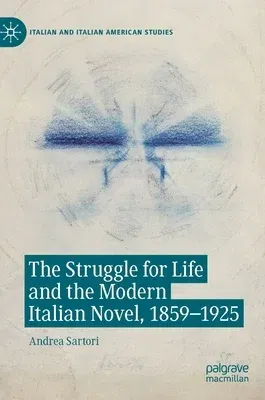Andrea Sartori
(Author)The Struggle for Life and the Modern Italian Novel, 1859-1925 (2022)Hardcover - 2022, 23 November 2022

Qty
1
Turbo
Ships in 2 - 3 days
In Stock
Free Delivery
Cash on Delivery
15 Days
Free Returns
Secure Checkout

Part of Series
Italian and Italian American Studies
Print Length
271 pages
Language
English
Publisher
Palgrave MacMillan
Date Published
23 Nov 2022
ISBN-10
3031188497
ISBN-13
9783031188497
Description
Product Details
Author:
Book Edition:
2022
Book Format:
Hardcover
Country of Origin:
NL
Date Published:
23 November 2022
Dimensions:
21.01 x
14.81 x
1.75 cm
Genre:
20th Century
ISBN-10:
3031188497
ISBN-13:
9783031188497
Language:
English
Location:
Cham
Pages:
271
Publisher:
Weight:
489.88 gm